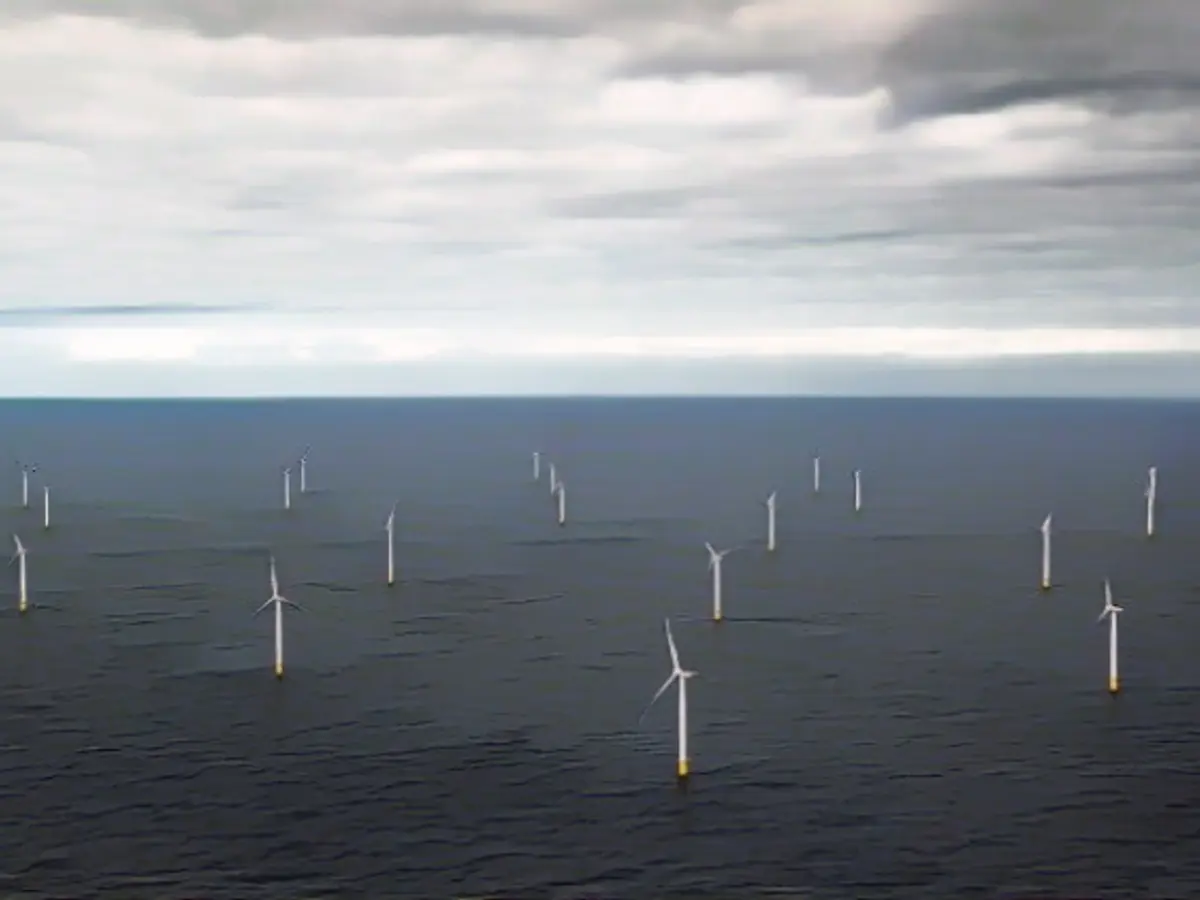Wind Power's Indispensable Role in Energy Transition, Yet Industry Struggles
Philipp Godron, from the Agora Energiewende think tank, believes that while wind power is crucial for the energy transition, the industry is currently weakening. Two major players, Siemens Energy and Orsted, have faced significant challenges, leading some to question the reliability of offshore wind power as a part of a climate-neutral energy supply.
But Godron disagrees, maintaining that offshore wind turbines, capable of achieving high full-load hours, are an essential component of a climate-neutral power supply. Even though Siemens Energy and Orsted have experienced issues, there is a growing market for manufacturers who can meet the offshore wind power demand.
Challenges for Expansion
The European wind industry, with Vestas, Nordex, Enercon, Siemens Gamesa, and GE Energy as the main players, faces challenges due to insufficient tender volumes and lengthy approval procedures. These issues have caused economic difficulties for several manufacturers, leading to production capacity reductions for some companies.
Achieving Expansion Targets
Despite these challenges, Germany has increased its expansion targets for offshore wind power from 8 gigawatts today to 70 gigawatts by 2045. Although the targets are ambitious, the potential for offshore expansion is far from exhausted. With the right measures, these goals can be achieved, provided everyone involved works together to overcome the challenges, such as a limited German sea area and the need for European cooperation to plan and implement wind projects across national borders.
Addressing Barriers to Expansion
Since last spring, various packages of measures have been introduced to speed up the wind power expansion, such as streamlining approval procedures, increasing tendering volumes, and designating more areas. These steps have shown some progress, but further acceleration is necessary to reach the target.
Economical Viability of Offshore Wind Farms
Despite challenges faced by specific companies, numerous companies are still participating in tendering rounds for offshore wind power, indicating their view of offshore projects as an attractive business model. In Germany, payments are made to connect wind farms to the electrical grid, suggesting their financial viability.
Wind Power as a Key Technology
The wind industry, while currently facing difficulties, is a growth industry that can and must sustain itself in private-sector competition. It's not an industry that should depend on permanent state subsidies. Competition is essential to achieve attractive production prices and, ultimately, low energy costs for everyone.
Wrapping Up
While the wind industry has encountered specific challenges, the potential for offshore wind power expansion is significant. With the right measures in place, such as standardized assessment procedures, focusing on infrastructure development, and fostering competition and cooperation, Germany can achieve its ambitious expansion targets. Offshore wind power remains a crucial technology for driving the energy transition and must remain in Europe to ensure a competitive and resilient energy supply.
Enrichment Data
Achieving the increased expansion targets for offshore wind power involves addressing challenges such as regulatory delays, state regulations, physical and cybersecurity risks, infrastructure development, and market distortion and public support. Solutions include standardized assessment procedures, promoting infrastructure development, fostering competition and cooperation, and technological innovation.








